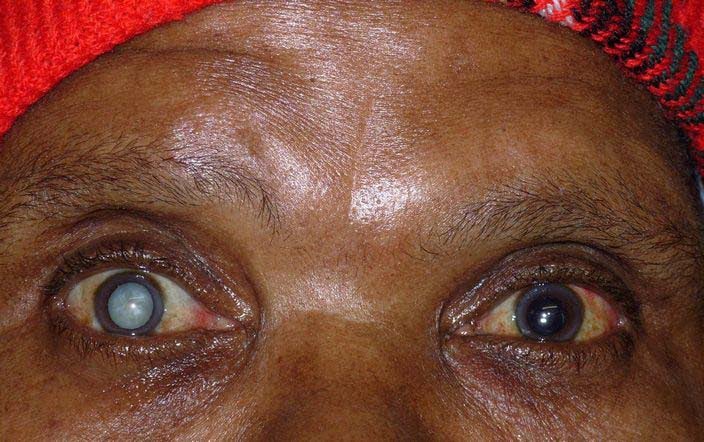Refractive Error: A Significant Public Health Concern in Ghana
Refractive error, a prevalent vision problem affecting an estimated 2.2 million people in Ghana, poses a formidable challenge to the nation’s health and socioeconomic development. This condition, characterized by the eye’s inability to focus light properly on the retina, leads to blurred vision and significantly impacts academic performance, productivity, and overall quality of life. The prevalence of refractive error is particularly high in low-income countries like Ghana, where access to essential eye care services remains limited. The Ghana Optometric Association (GOA) has recognized this pressing issue and is actively working to address the gap in access to refractive error care.
The Impact of Refractive Errors on Individuals and Society
The consequences of uncorrected refractive errors extend beyond mere visual impairment. Children experiencing blurred vision struggle in school, facing difficulty reading, writing, and participating in classroom activities. This can lead to poor academic performance, reduced educational attainment, and ultimately, limited opportunities in the future. Adults with uncorrected refractive errors face similar challenges in the workplace, impacting productivity, increasing the risk of accidents, and hindering career progression. The cumulative effect of these individual struggles translates to a significant socioeconomic burden on the nation, hindering development and progress.
Bridging the Gap: The Ghana Optometric Association’s Efforts to Improve Access to Care
Recognizing the urgent need to address the refractive error burden, the GOA, in collaboration with the Department of Optometry and Visual Sciences at the Kwame Nkrumah University of Science and Technology (KNUST), organized the 2nd Refractive Error Week Symposium. This event, themed “Bridging the Gap: Dispelling Refractive Error Myths to Improve Access,” served as a platform for raising awareness, advocating for policy changes, and celebrating the next generation of eye care professionals. The symposium also included a White Coat Ceremony, marking the transition of optometry students from academic learning to clinical practice, symbolizing their commitment to serving the community and addressing the nation’s eye health needs.
Challenges and Advocacy for Improved Eye Care Services
Despite the availability of effective interventions, access to refractive error care remains a major challenge in Ghana. The limited number of practicing optometrists, with only about half serving in the public sector, contributes to this gap. Furthermore, the lack of active recruitment into the public health system, with only retiring professionals being replaced, exacerbates the shortage of eye care professionals, particularly in underserved communities. The GOA has identified the need for policy changes and increased government support to address these challenges.
Addressing the Shortage of Optometrists and Improving Remuneration
The GOA President, Professor Samuel Bert Boadi-Kusi, highlighted the urgent need to increase the number of optometrists in the public sector and improve their remuneration. With only about 300 optometrists serving in the public health system, the current workforce is insufficient to meet the eye care needs of the population. Prof. Boadi-Kusi called on the government, specifically the Ministry of Health and the Ghana Health Service, to review and improve the salary structure for optometrists. He emphasized that inadequate remuneration hinders recruitment and retention of professionals, particularly in remote and underserved areas.
Key Advocacy Points and Call to Action
The GOA’s advocacy efforts focus on several key areas: public education and awareness creation to dispel myths surrounding refractive errors; advocating for the integration of refractive error services into the National Health Insurance Scheme (NHIS) to make eye care more affordable and accessible; and urging the government to prioritize the recruitment and deployment of optometrists to underserved communities. The GOA believes that these interventions are essential to bridge the gap in access to refractive error care and improve the vision and quality of life for millions of Ghanaians. The call to action is clear: increased government support, improved remuneration for eye care professionals, and sustained public awareness campaigns are critical to addressing this significant public health challenge and ensuring that everyone has access to the eye care services they need.














